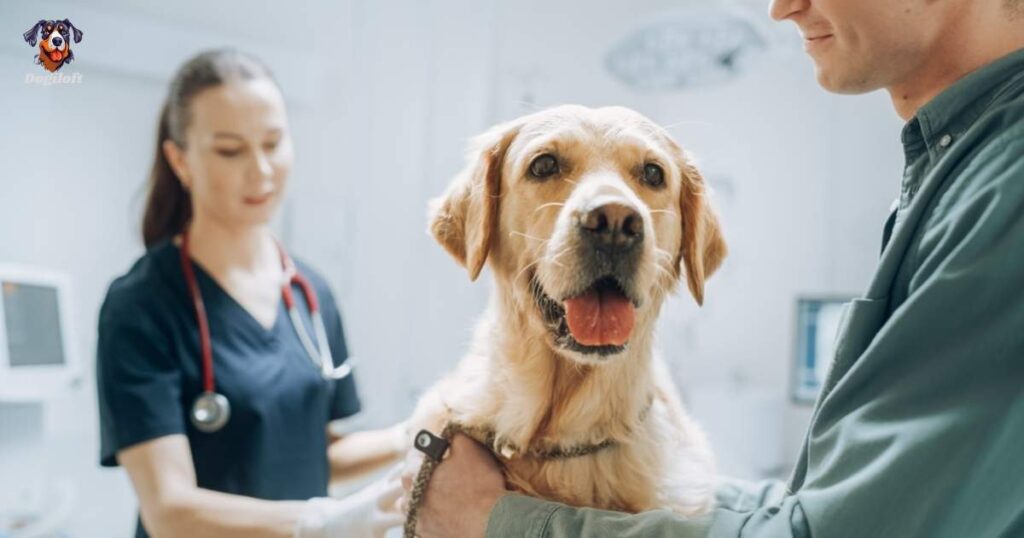If you are wondering, does a human pregnancy test work on a dog? you’re not alone. Many pet owners are curious about the practicality of using these tests to determine whether their furry friends are expecting. However, understanding the biology of dogs and the limitations of human pregnancy tests is crucial for making informed decisions.
Can You Test a Dog with a Human Pregnancy Test?
The short answer is no a Human Pregnancy Test Work on a Dog. Here is why:
- Hormonal Differences: Human pregnancy tests detect a hormone called human chorionic gonadotropin (hCG), which is produced by the placenta in pregnant humans. Dogs, on the other hand, produce a different pregnancy hormone called relaxin. This means that the hormone detected by human tests is completely absent in dogs.
- Physiological Variances: The reproductive systems of humans and dogs differ significantly. While humans rely on hCG as an early marker for pregnancy, dog pregnancies involve unique biological processes that human tests cannot detect.
- Effectiveness: Even if a dog’s urine were tested using a human pregnancy test, the test would show a false negative because it cannot detect relaxin.
Veterinary Testing: Confirming Pregnancy

When it comes to confirming a dog’s pregnancy, professional veterinary testing is the gold standard. Vets have access to tools and techniques that are specifically designed for animals, just as they can guide you on how to toilet-train a puppy dog.
Methods Used by Veterinarians:
- Ultrasound:
- Vets can use ultrasound to detect pregnancy in dogs as early as 25 to 30 days after mating.
- Ultrasound is non-invasive and can confirm fetal heartbeats, ensuring the puppies are alive and healthy.
- Relaxin Testing:
- A blood test that measures the presence of relaxin, a hormone produced by the developing placenta in pregnant dogs.
- This test is highly accurate and can usually confirm pregnancy around 21 to 28 days post-breeding.
- Physical Palpation:
- Skilled veterinarians can sometimes feel the developing embryos by gently palpating the abdomen. This method is typically used between 28 and 35 days into pregnancy.
Benefits of Veterinary Diagnosis:
- Early detection allows for proper prenatal care.
- It eliminates guesswork and provides accurate results.
- Vets can also assess the health of the mother and puppies.
Understanding the Canine Gestation Period
Dogs have a gestation period of approximately 63 days, though this can vary slightly depending on the breed and individual dog. Here’s a breakdown of the key milestones:
| Stage | Timeline | What Happens |
|---|---|---|
| Early Development | Days 1-21 | Fertilized eggs travel to the uterus and implant. |
| Fetal Growth | Days 22-40 | Organs and body structures begin to form. |
| Final Development | Days 41-63 | Puppies gain weight and prepare for birth. |
Signs of Pregnancy in Dogs:
- Increased appetite.
- Enlarged nipples.
- Decreased activity or lethargy.
- Behavioral changes, such as nesting.
How Can I Test My Dog for Pregnancy at Home

While professional testing is the most reliable option, some pet owners explore at-home methods. Here’s what you need to know about Dog Pregnancy: Signs, Care, and Preparing for Puppies
At-Home Options:
- Behavioral Observation: Look for signs such as nesting behavior or a change in temperament.
- Physical Changes: Monitor for weight gain, a swollen abdomen, or enlarged nipples.
Challenges of At-Home Testing:
- Inaccuracy: Physical and behavioral changes can sometimes mimic pregnancy but may be caused by other health issues.
- Delays: Waiting too long for confirmation might delay necessary prenatal care.
Pro Tip: While at-home methods can provide clues, they are not a substitute for veterinary confirmation.
Do Human Fertility Tests Work on Dogs
Human fertility tests are designed to detect hormones like luteinizing hormone (LH) or estrogen in humans. They are not effective for dogs due to several reasons:
- Species-Specific Hormones: The reproductive hormones in dogs differ significantly from those in humans.
- Accuracy Issues: Hormonal cycles in dogs vary by breed, size, and age, making human tests ineffective.
Can You Take a Urine Test for a Pregnant Dog?
Unlike humans, urine tests are not commonly used to confirm pregnancy in dogs. Here’s why:
- Relaxin Detection: Relaxin, the hormone that confirms pregnancy in dogs, is not present in urine. It must be detected through a blood test.
- False Assumptions: Urine tests might lead to inaccurate assumptions and could delay proper care.
Key Insight: Blood testing at the vet remains the most reliable way to confirm canine pregnancy.
Key Takeaways
- Human pregnancy tests are ineffective for dogs because they detect a hormone (hCG) that dogs do not produce.
- Veterinary testing methods such as ultrasounds and relaxin blood tests are reliable and provide accurate results.
- The canine gestation period lasts about 63 days, with key milestones along the way.
- At-home methods for detecting pregnancy in dogs are helpful but should not replace professional diagnosis.
Understanding the unique biology of dogs is essential for ensuring their health and well-being during pregnancy. If you suspect your dog is pregnant, consulting a veterinarian is the best step to confirm and provide the care she needs.
FAQs
At what stage can a vet confirm pregnancy in a dog?
A: Vets can typically confirm pregnancy using ultrasound by 25-30 days post-mating. Blood tests for relaxin can provide confirmation as early as 21 days.
What are the risks of using unreliable pregnancy detection methods for dogs?
A: Using unreliable methods can: Human Pregnancy Test Work on a Dog
- Lead to mismanagement of the pregnancy due to incorrect assumptions.
- Delay necessary veterinary intervention, risking the health of the mother and puppies.
- Cause stress or anxiety for the owner due to uncertainty.
Conclusion
Human pregnancy tests are not suitable for detecting pregnancy in dogs because they measure hCG, a hormone not present in canines. Instead, veterinarians rely on methods such as ultrasounds, relaxin blood tests, and palpation to confirm pregnancy accurately. These professional approaches ensure that both the mother and her developing puppies are monitored and cared for effectively, reducing risks and providing peace of mind for pet owners.
The canine gestation period lasts approximately 63 days, and observing its key milestones is vital for proper prenatal care. While at-home methods like behavioral observation and monitoring physical changes might offer clues, they lack precision and should not replace veterinary advice. For the best outcomes, always consult a vet to confirm pregnancy and develop a care plan that ensures your dog’s health and well-being throughout the pregnancy.








